Yearly Archives: 2020
World Toilet Day 2020
Today is World Toilet Day 2020.
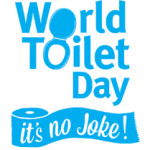
I’d like you to take a minute today and think about the Toilet. Imagine if you didn’t have one?
Spare a thought for the 4 billion people worldwide that don’t have access to a flushing toilet.
Its astounding BUT there are more people with a mobile telephone than a toilet and clean water to wash themselves.
Now, telling your workmates and classmates is a simple way to raise awareness of a sometimes very private subject.
Another way to help is stock up on toilet paper like Who Gives a Crap.
They donate half of their profits to improve sanitation for those less fortunate.
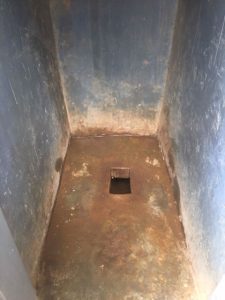
Woollahra Council trees are blocking my drains
Many of the blocked drains we attend to are caused by the trees that line the streets managed by Woollahra Council.
At street level, the trees’ canopy brings summer shade and all kinds of birdlife.
Contrary to belief, tree roots don’t go in search of water. They are stimulated as moisture levels, and the surrounding soil temperature reaches a point that is appealing to them.
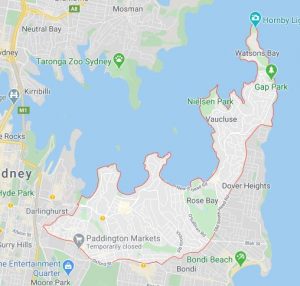
Sydney suburbs managed by Woollahra Council: Bellevue Hill, Darling Point, Double Bay, Edgecliff, Paddington, Point Piper, Rose Bay, Vaucluse
In most circumstances, the tree roots enter through leaking pipe joints and damage the sewer drains and stormwater pipes that take wastewater off your property. Many homeowners hold Woollahra Council responsible for their blockage and expect they will clear their blocked drains for free because the Council own the trees.
Well, in some cases they do!
But, Woollahra Council gets their income from you the ratepayer, and as you would expect, they have guidelines for spending ratepayers money to fix your blocked drains.
If you live in one of the suburbs managed by Woollahra Council, click here to see the Woollahra Council Wastewater Policy.
The top points are that you the homeowner:
Must have a sewer service diagram for your home.
Must maintain your sewer pipes.
Must prevent sewer blockages.
Must prevent sewerage from escaping into the environment.
May be entitled to the Council plumber clearing your blocked drain.
Waverley Council trees are blocking my drains
Did you know 85% of blocked drains are caused by tree roots?
In Waverley Council’s jurisdiction, blocked drains are cause quite often by the roots of the trees that line the streets.
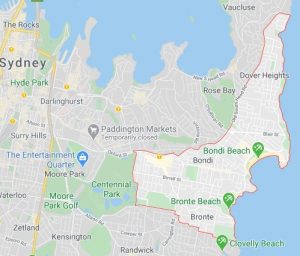
They can block drains and sometimes damage the sewer and stormwater pipes that take wastewater off your property.
Many homeowners hold Waverley Council responsible for their blockage and expect they will clear their blocked drains for free because they own the trees.
Well in some cases they do!
But, Waverley Council gets their income from you the ratepayer and as you would expect, they have guidelines for spending ratepayers money to fix your blocked drains.
If you have a Blocked drain and live in one of these suburbs managed by Waverley Council including Bondi, Bondi Beach, Bondi Junction, Bronte, Charing Cross, Clovelly, Dover Heights, North Bondi, Queens Park and Waverley, click here to see the Waverley Council Sewerage Stormwater Drain Blockage Policy.
The top points are that you the homeowner:
Must have a sewer service diagram for your building.
Must maintain your sewer pipes.
Must prevent sewer blockages.
Must prevent sewerage from escaping into the environment.
May be entitled to the Council plumber clearing your blocked drain.
Bathroom cleaning tip #2
We plumbers wash our hands 10 or more times a day.
The Coronavirus pandemic is making us all think about the transmission of germs and how the virus is transmitted on the surfaces we come in contact with. Any time we work in your bathroom we more than likely touch the hot and cold taps in your bath, shower or hand basin and the cold water tap to your toilet.
The tap supplying water to the toilet isn’t touched regularly, so, it has a reduced chance of transmission through touch. But, it is near the toilet so airborne germs are a concern.
The simple task of using the toilet and then wiping ourselves is something we all learned as kids, but, in researching this article I’m surprised to learn the number of different methods people use.
No matter how you do it, the first thing we all do is flush the toilet.
Before we wash our hands!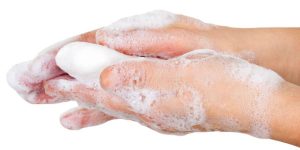
Alarm bells are ringing for you right now. As they should be!
But(t), let’s be practical.
Whether you have a plumber working in your bathroom or not, keep an atomiser spray bottle with a mix of water and disinfectant with an appropriate cleaning cloth in your bathroom. Spray the toilet flush button, the cistern lid, the toilet seat and lid and wipe them over thoroughly.
And if you’re keen to clean the entire bathroom, click here to see another of our easy cleaning tips.
Randwick Council trees are blocking my drains
Blocked drains are a large part of our workday; every day! And 85% of blocked drains are caused by tree roots. Our home is Coogee Randwick, in the eastern suburbs of Sydney Australia.
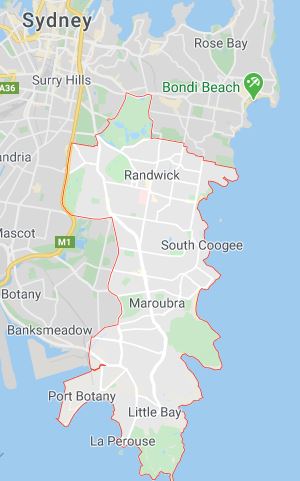
Tree-lined streets in Randwick Council are the reason for a lot of the blocked drains that we attend to. They damage the sewer drains and stormwater pipes that take wastewater off your property.
Many homeowners hold the council responsible for their blockage and have expectations that the council will clear their blocked drains for free because they own the trees.
Well in some cases they do.
But, Randwick Council gets their income from you the ratepayer and as you’d expect they have guidelines for spending ratepayers money to fix your blocked drains.
If you live in one of these Sydney suburbs managed by Randwick Council including Centennial Park, Chifley, Coogee, Kensington, Kingsford, Little Bay, Malabar, Maroubra, Matraville, Pagewood, Phillip Bay, Port Botany and Randwick, click here to see Randwick Council Sewerage Stormwater Drain Blockage Policy.
The top points are that you the homeowner:
- Must have a sewer service diagram for your home
- Must maintain your sewer pipes.
- Must prevent sewer blockages
- Must prevent sewerage from escaping into the environment
- Maybe entitled to the Council plumber clearing your blocked drain
Flushable wipes block drains
As you know, up to 85% of blocked drains are caused by tree roots and can be easily managed.
But, there is a growing number of blocked drains that are caused by “hygienic wipes”. Hygienic wipes block up house drains and sewer mains that cost homeowners and Sydney Water a fortune to maintain. So be careful what you flush!
To put it simply, hygienic wipes don’t break down like toilet paper and as many household pipelines have imperfections, the wipes get caught and cause a blocked drain.
If you are polishing your bottom….. and flushing more wipes, you could be in trouble.
This Choice magazine YouTube video shows how wipes don’t break down for up to 21 hours.
Don’t do this in the bathroom!
During our Coronavirus work schedule, I’ve found some fun hints and tips about plumbing and health that are worth sharing.
How germs spread:
- on your toothbrush,
- your toilet seat,
- and the toilet flush button, are just a few examples.
How is water connected to my toilet cistern?
Many modern toilets have a concealed cistern. That’s the tank that holds the water that flushes the loo. Now, they do look fantastic and they do save water.
The small dual flush buttons are the access panel for the internal workings of the cistern. When they need maintenance, the only way to repair them is through that access panel.
The water tap is usually built into the wall and this one couldn’t be replaced without cutting into the wall behind.
Cow gets stuck in sewer manhole
During a long career dealing with blocked drains we have seen some unusual things in the sewer, and this is one of them.
This 1:53sec YouTube clip shows a team of Chinese firefighters, police and vets rescue a cow that has fallen down a sewer maintenance hole.
The pregnant cow looks pretty uncomfortable as she is winched out of the manhole. But she ambles off into the night with her grateful owner as if nothing has happened.
Know your water heater #2
The hot water tempering valve
Knowledge about your water heater will save you money!
Second in the series, this 44-sec clip will show you a typical tempering valve on a gas water heater. That’s the blue valve on the side of the heater.
It should be checked by your plumber annually and replaced every five years.
The tempering valve is fitted to prevent scalding of the aged, the infirmed and young kids. It should be on every storage(and continuous) water heater like this.
If you are changing or upgrading your water heater, you should have a Tempering valve fitted.
Get into hot water this Winter!
With the winter season underway, its time to think about hot water.

Take 10 minutes to check on your water heater.
Is it gas or electric?
Check it’s location. Ensure that it’s not leaking on any of the pipes or connections.
Check the cold water control feed tap, usually on the bottom left of the heater. Make sure it turns off and back on.
If you have a storage tank, make sure you check the pressure relief valve is working correctly. And that it’s not leaking.
An efficient water heater will supply all the hot water your family will need this winter.
If you’re not sure, call me on 02 9664 4990!
The Lone Drainer and Pronto. Coronavirus Diaries Madrigal Communications
The Lone Drainer Coronavirus Diaries has been a chance to check in with small businesses to find out how they have been getting on during the Coronavirus lockdown of 2020.
In this clip, I speak with Tim Entwisle from Madrigal Communications.
Tim writes up tender documents for Aussie companies that are applying for large government contracts in the construction, energy and telecom sectors.
I’ve known Tim for about eight years. He’s a Rugby fanatic, an ocean swimmer, a wordsmith. Tim loves language, and he blogs about our language. He has written several blogs about Coronavirus.
Check them out on his website. https://madrigal.com.au/word-of-the-week-blog/
Know your water heater #1
Hi, its Dave Conroy here from The Lone Drainer and Pronto.
As we approach the winter of 2020, my message for today is about hot water.
You need to know how to turn off the water supply to your water heater.
And most importantly, I want you to know what a temperature and pressure relief valve is.
This 1min 48 sec YouTube clip will show you how it’s done on a 50-litre heater. Yours may be different. If you would like to know more……Call me!
Plumbers bathroom cleaning tip #1
Some bathrooms are a little neglected; especially if there are boys in the house.
Like many among us, during Coronavirus isolation, I’ve taken the opportunity to catch up on a few old recipes, a stack of books and some cleaning. And, I feel sharing the following cleaning tip would save everyone some time.
You will need:
1. A can of the cheapest shaving cream you can find in Woolies or Coles.
2. 2 Old bath towels
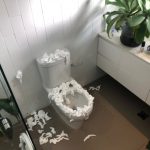
Spray the shaving cream on and around your toilet, including the floor.
Taking the toilet seat off would earn extra points.
Leave it to sit for 10-15 minutes.
Then, wipe off the excess with an old bath towel and some hot water and wipe over with the other towel.
I know you’ll be pleasantly surprised!
The Lone Drainer And Pronto Coronavirus Diaries The Fudge Shop #1
The Lone Drainer Coronavirus Diaries is a chance to catch up with some friends and businesses that we help to see how they are affected during the Coronavirus lock down of 2020.
In this short clip I chat with Adam Joseph, owner of The Fudge Shop in Darling Harbour Sydney NSW.
The Fudge Shop has been shut down and Adam shares how the Coronavirus has affected his family and his business.
The Lone Drainer And Pronto Coronavirus Diaries D’Ettorre Real Estate #3 SME Advice
In this episode of The Lone Drainer And Pronto Coronavirus Diaries, I speak with Dom D’Ettorre, principal of D’Ettorre Real Estate in Woollahra Sydney.
Subsidies are available for commercial tenants. SME’s – Small to medium entrepreneurs. Beautician, dentists, yoga studios and gymnasiums have lost 100% of their business income.
Find out how that affects the tenants and the property owners. “It’s NOT 1 size fits all.”
The Lone Drainer And Pronto Coronavirus Diaries D’Ettore Real Estate #2 Negative Gearing
In this edition of The Lone Drainer And Pronto Coronavirus Diaries, I speak with Dom D’Ettorre, principal of D’Ettorre Real Estate in Woollahra Sydney about how his negatively geared owners are being affected.
Investors have bought properties as AirBnB sites and now as travel is severely restricted the owners have to adjust quickly to manage the finance on their properties.
Some properties may be vacant for 6-12 weeks
Mum and dad investors who thought “I’m going to buy an investment property” and borrowed 90% and now lost their job… it’s going to hurt.
Listen and learn from Dom’s experience.
The Lone Drainer And Pronto Coronavirus Diaries D’Ettorre Real Estate #1 What’s going on
In this edition of The Lone Drainer And Pronto Coronavirus Diaries, I speak with Dom D’Ettorre, principal of D’Ettorre Real Estate in Woollahra Sydney.
2020 was shaping up as a landmark year for Sydney real estate, then the Coronavirus came to our shores.
Dom shares how his clients, property owners and their tenants are responding to the rapid-fire changes to the Sydney real estate world during the lockdown. He shares how vendors and prospective buyers are changing their habits, their expectations, their motivations and the pressures affecting them.
Toilet paper is no longer a hot ticket. Guess what is?
The stampede on toilet paper has slowed for now. But I overheard an 18 year old chemist assistant telling her mum about the latest hot items running out the door of her pharmacy during the lockdown over the last 4 weeks that is worth sharing.
She rattled off a list of items and her thoughts on why.
With respect to brand names…
Armaforce – General health.
Panadol – Just in case they get the virus.
Thermometers – 36.3 is normal body temperature.
Lemsip – To keep colds away.
Betadine – I don’t know why.
Voltaren – Over training by the work from home crew.
Thrush cream – They’re all wearing leggings and have thrush. Bad idea.
Pregnancy test kits – There will be a baby boom early 2021.
Nail polish – They can’t go anywhere.
Why you need a sewer diagram
One of the handiest tools for a plumbing professional is a sewer service diagram. It’s a map of where the sewer pipes run within your home.
It’s easily obtainable, and you can get it from Sydney Water, reputable plumbing suppliers and, even your local plumber can get it for you.
It’s simply an A4 sheet that has an outline of your home, your property. It shows where all the pipes run within your home and how they connect to the sewer.
The sewer service diagram will make it easier for your plumber to get into your sewer pipes to clear your blocked drain. And if you are planning a preventative maintenance program, it shows points of access where we can get into your pipes with a minimum of fuss.
In the long term it will save you money.
So if you have repeat problems with your sewer pipes, get a sewer diagram and keep it handy.
The Lone Drainer And Pronto Coronavirus Diaries #1 Wylies Baths
The Lone Drainer Coronavirus Diaries is a chance to catch up with some of our friends and businesses that we help, and that help us, to see how they are affected during the Coronavirus lock down of 2020.
In this short 4.33 minute YouTube clip I speak with Courtney Tallon, the manager of Wylies baths in Coogee NSW.
Can Coronavirus be spread through wastewater pipes in a home or hospital?
Sydney April 15th 2020
“Staying connected” has become a part of our language lately.
Did you know we are all connected through the wastewater pipes in our homes?
Whether you live in a single level detached home or a multi-storey building, all our plumbing fittings drain into the same city sewer. That’s your shower, bath, basin, your WC, kitchen sink, washing machine, laundry tubs and floor drains.
A study showed the 2003 SARS virus spread through the plumbing system of a HongKong residential complex whose residents had 300 confirmed cases and 42 deaths- about 1/6th of the infections and fatalities on the entire island.
Our Australian Standards state “all plumbing fixtures must have a working trap or water seal”. That is, the S-bend at the outlet of the fixtures should have water sitting in them OR flowing through them.

Regularly we’re asked to investigate “a sewer smell” in a bathroom or laundry that is nothing more than a dry trap.
But, its allowing smells and bacteria to come from the wastewater and sewer pipes into your room.
Hypothetically, if an infected neighbour flushed their toilet and that wastewater entered a pipe you’re connected to, then bacteria could pass through a dry trap and enter your bathroom.
While person-to-person and surface-to-person is the most common means of spreading Coronavirus, I want you to be aware that any open or dry traps may allow contaminated droplets into your space.
So:
• Do not ignore unexplained foul smells in bathrooms, kitchens or washing areas.
• Ensure all your sink traps and S-bends have water in them.
• Run water into all tubs and showers for a few seconds in the morning and evening, paying particular attention to floor drains in bathrooms and laundries.
• If the wastewater pipework from a toilet, sink or other household appliance appears to be disconnected or open, seal it immediately.
• If you find any crack or leak in pipework, seal it with strong tape.
• Encourage your facilities managers to monitor the wastewater system performance of your building, looking out for things such as drainage overflows or sewer smells.
If you have any questions about this, I invite you to call me.
Tree roots don’t know about Coronavirus
Sydney April 14th 2020
Easter is over for another year.
Although our towns are slowing because of the Coronavirus, and we are quickly changing our daily home and work habits, here at The Lone Drainer and Pronto, we are still working away.
Working from home is putting our normal facilities under a little more pressure. That means the internet, the exercise areas and our bathrooms.
With all that extra baking and comfort meals, our sewers are under a more significant workload. Tree roots don’t know about Coronavirus, and still seek food and water in the sewer pipes they can grow into.
So, if you hear your drains gurgling don’t ignore them. They are asking for help.
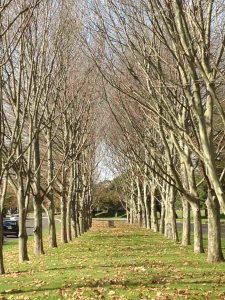
Dormant, but active underground
Japanese tech gadget prevents elderly toilet accidents
Sydney April 6th 2020
Approaching a milestone birthday, its fair to say that my personal plumbing is in reasonable working condition. I have a skin check annually and a biennial colonoscopy and prostate check. And, I encourage my peers to do the same.

But, when my middle son recently took a trip to Japan it inspired me to research the technology that’s available with Japanese plumbing.
And apart from the wonderful bidet type toilets that do everything, I found this little gadget.
It simply measures what is going on with your personal plumbing.
When you’re out and about and your bowels need to be emptied, it sends you a text message warning that you’d better get to a toilet in the next ten minutes.
Now, I hope my three boys don’t have to help their dad with his toileting, but the benefits of the Japanese Poo app for the aged and disabled seem like a helpful advancement.
I encourage you to follow the link to see it.
Be careful what you flush down the toilet!
Sydney March 31st 2020
As we work through COVID-19, our work, social distancing, hygiene and consumption habits are being challenged daily.
The run on toilet paper in our supermarkets has left me bewildered.
I had to see it for my own eyes. And did!
The take away for me is that those who couldn’t purchase their normal supply have resorted to buying and using baby wipes, paper towels and facial tissues. Please remember they’re not for flushing down the toilet because they don’t break down and can block your drains!
If you’re desperate for toilet paper we have a few boxes at our Coogee office.
